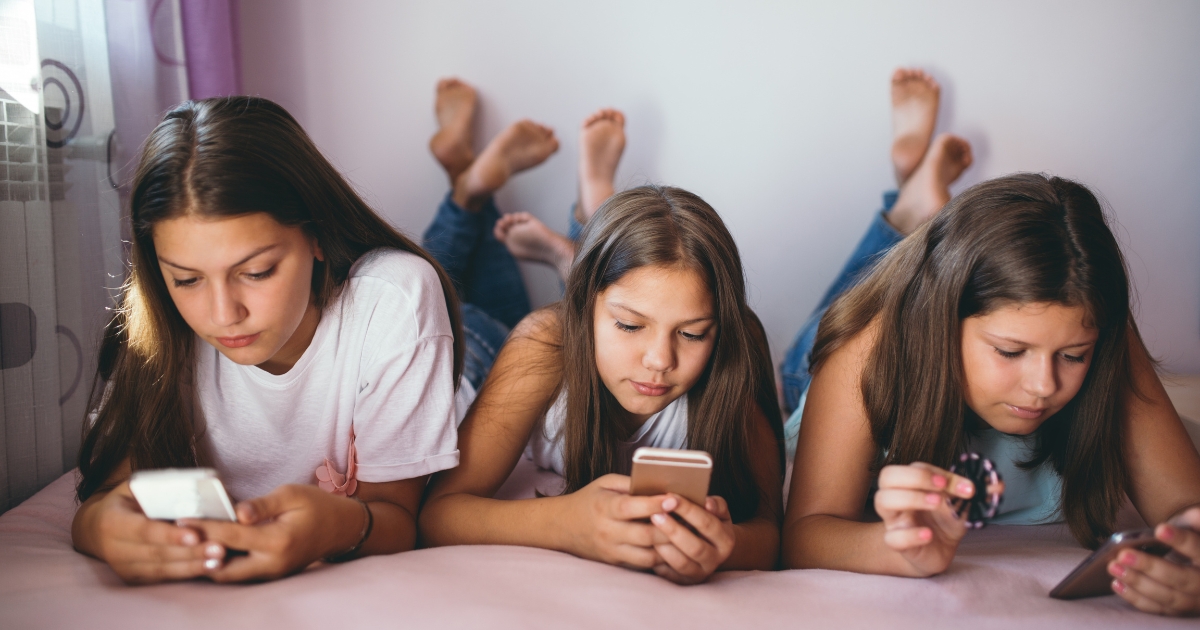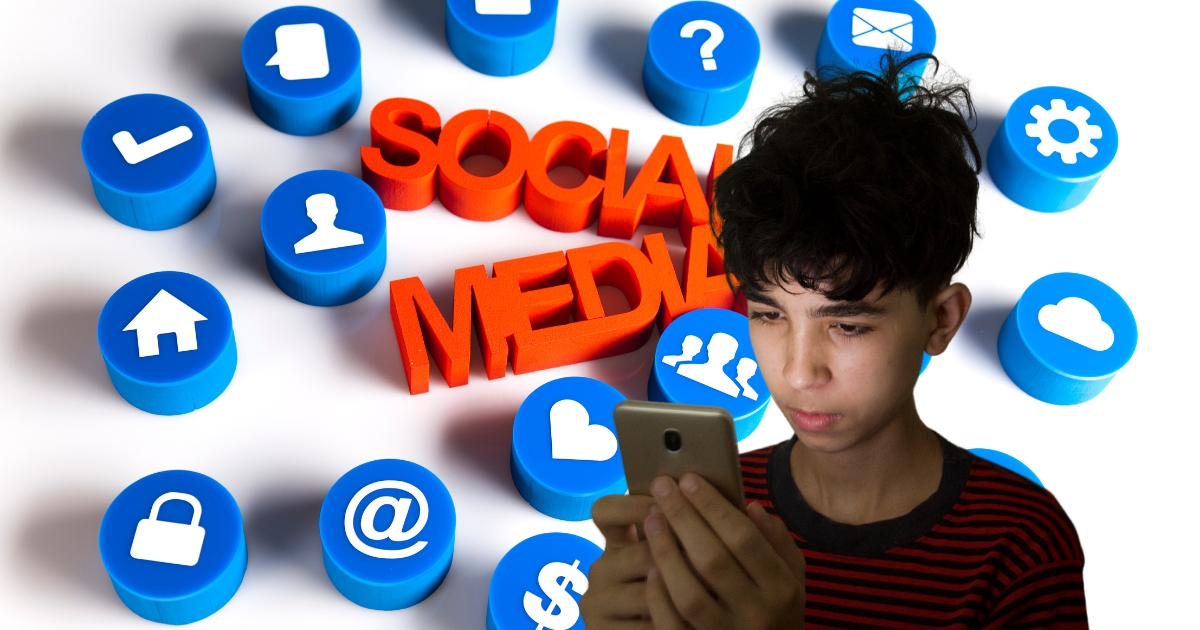“Just one more scroll.” How many times have you heard your teen say this? Social media is vibrant, entertaining, and sometimes a little too good at keeping us hooked, especially teenagers. For parents and educators, understanding the effects of social media on teenagers has become as essential as teaching them how to ride a bike. A balanced approach is key, but spotting the signs of social media addiction and protecting your teen’s mental health can feel a bit overwhelming at times.
But don’t worry—you’re not alone in this. With a little awareness and support, you can help your teen build a healthier relationship with social media.
The Allure (and Danger) of Social Media for Teens
Social media has become a digital playground, offering connection, self-expression, and entertainment at the swipe of a screen. For teens, it can be a place to share their lives, explore their identities, and stay connected with peers. Platforms like TikTok, Instagram, and Snapchat are designed to grab their attention and keep it—with endless scrolling, “likes,” and comments triggering dopamine hits that make it hard to look away.
But here’s where it gets tricky. While social media helps teens feel more connected, too much time spent online can lead to serious consequences—ones that aren’t always easy to see right away. That’s why it’s so important to understand how these platforms impact your teen’s mental and emotional well-being.
The Effects of Social Media on Teenagers’ Mental Health
The adolescent years are a whirlwind of emotions and self-discovery. During this phase, teens are particularly sensitive to external influences, and social media is one of the loudest voices in the room. Let’s take a closer look at how it’s affecting their mental health.
- Lowered Self-Esteem and Body Image Issues
Ever found your teen fixated on filtered selfies or pictures of influencers with “perfect” lives? Comparing themselves to these idealized images can affect how they see their own worth. Studies have linked higher social media use to a rise in body dissatisfaction and lower self-esteem in teens, especially in girls.
Think about it this way—when you’re constantly exposed to highlight reels of other people’s lives, it’s easy to feel like you’re not measuring up. Teens may begin to wonder if they’re “good enough,” leading to a sense of inadequacy.
- Anxiety and Social Pressure
Social media can be a pressure cooker for teens. There’s an unspoken need to always be “on,” responding to comments, posting regularly, and keeping up with trends. The fear of missing out (commonly known as FOMO) can make scrolling through their feeds more stressful than fun.
And don’t forget cyberbullying—one of the darker sides of social media. Hurtful messages and online harassment can deeply affect a teen’s confidence and sense of safety. Even a negative comment under a seemingly innocent post can linger in their minds, feeding feelings of anxiety.
- Sleep Disruption
If your teen is spending hours each night glued to their phone, their sleep is probably taking a hit. The blue light emitted by screens has been shown to mess with the body’s sleep-wake cycle, while the constant pull to check notifications keeps their brain buzzing long into the night. Poor sleep doesn’t just leave them cranky in the morning—it can lead to mood swings, lower academic performance, and even depression.
- Addiction and Dopamine Dependency
Social media addiction is real. Apps are designed to hook users by rewarding them with micro doses of dopamine—a “feel good” chemical released when they get likes or views. Over time, teens might begin to rely on this external validation to feel valued, creating an unhealthy dependency.
If it feels like your teen finds it impossible to step away from their phone, it could be time for an intervention.

Spotting the Signs of Social Media Addiction
Recognizing social media addiction in its early stages can make a huge difference. Here are some telltale signs to look out for:
- Screen Time Overload: Is your teen spending several hours a day on social media? Do they prioritize screen time over other activities?
- Mood Swings: Are they irritable, anxious, or depressed when they can’t access their favorite apps?
- Social Withdrawal: Are they skipping family time or avoiding offline friends in favor of virtual interactions?
- Lack of Focus: Has their academic performance dropped, or are they struggling to focus on homework and hobbies?
If these signs sound familiar, it’s time to take steps toward helping them regain balance before harmful habits take root.
Preventing Social Media Addiction in Adolescents
The good news is that teens don’t have to give up social media entirely to lead a healthy life—they just need boundaries and guidance. Here are some practical tips to help prevent addiction and foster healthier habits:
- Set Limits on Screen Time
While you shouldn’t aim to control every moment of their screen time, setting reasonable limits can do wonders. Encourage your teen to take breaks and suggest “unplugged” hours before bed. Most phones now offer screen time monitoring tools that can help with this.
- Encourage Offline Relationships
Make sure social connections aren’t limited to their phones. Help your teen plan meetups with friends, join an extracurricular club, or pursue hobbies that don’t involve screens. Real-world interactions are far more fulfilling than online ones in the long run.
- Lead by Example
Are you scrolling through your feed while telling your teen to put their phone away? Teens are quick to notice mixed signals, so model the habits you want them to follow. Practice device-free family dinners and designate times when everyone in the household disconnects.
- Discuss Social Media’s Impact Honestly
Having open, judgment-free discussions is key. Talk to your teen about how social media works and how it might affect their emotions or self-esteem. Help them understand that most photos and videos they see online are curated and don’t reflect real life.
- Focus on Mental Health
Support your teen in building confidence and resilience. Remind them of their unique strengths and encourage self-care activities like journaling, exercise, or meditation. Creating a solid emotional foundation can help them weather the highs and lows of social media use.
- Introduce Balanced Alternatives
Instead of banning social media altogether, show them what balance looks like. For example, encourage them to switch from mindless scrolling to using social media for learning or creating something meaningful—like following educational accounts or sharing their own artwork.
Partnering With Your Teen
At the end of the day, tackling the effects of social media on teenagers is less about controlling their behavior and more about working together. Teens are far more likely to open up and listen when they feel understood. Acknowledge their need for connection and make tech rules a collaborative effort.
Remember, you don’t have to frame social media as “the enemy.” These platforms are just tools, and like any tool, it’s all about how they’re used. By helping your teen strike a healthy balance between online and offline life, you’re giving them the skills they need to thrive in the digital age.
Looking Ahead
Social media is here to stay. The question isn’t how to get rid of it but how we can raise teens who use it responsibly. Take the time to educate yourself on its effects, show empathy, and create an environment where balance is possible. Armed with these tools, your teen can develop habits that allow them to enjoy the best of technology without letting it harm their mental health.
And remember—you don’t have to tackle this alone. Whether you’re a parent homeschooling in your living room or an educator at the forefront of teen development, resources like DKM Homeschool Resource are here to guide and support you every step of the way. Together, we can raise a generation that’s digitally savvy and emotionally grounded.





